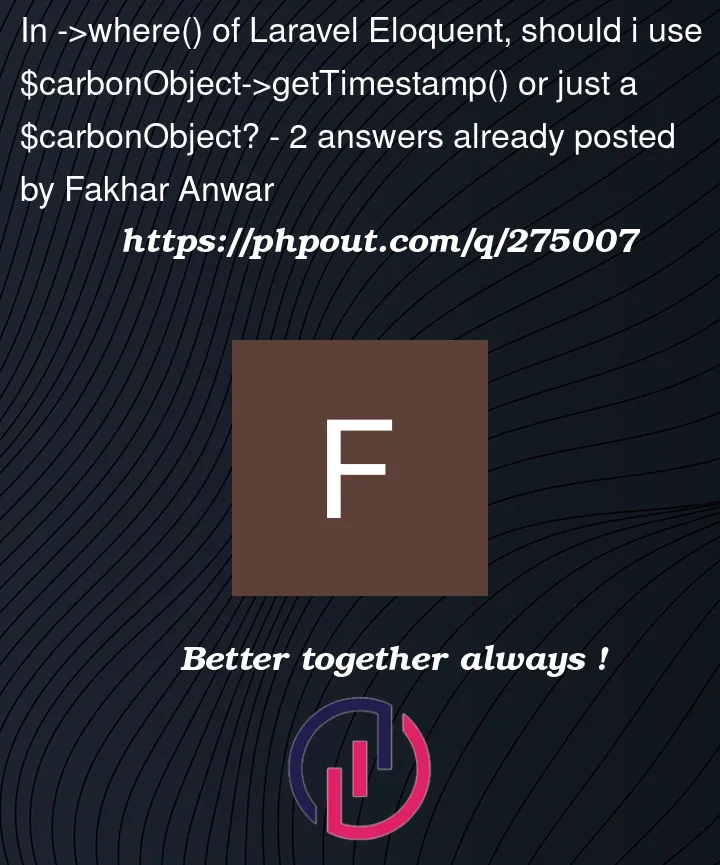I am unsure if I should use the Carbon date object directly in the where() function. Or should I use the timestamp of the Carbon (date) object?
$todayMarketCloseTime = Carbon::now('Asia/Karachi')->hour(15)->minute(10)->second(00);
// Should I get the timestamp on the Carbon date object before passing it to where function?
$ratiosUpdatedAt = $todayMarketCloseTime->getTimestamp();
return Ratio::where('updated_at', '>=', $ratiosUpdatedAt)
->orderBy('ratio', 'desc')
->get();
I am expecting to get all dates fom Ratios table whose updated date is greater than or equal to the Closing time of the Stock Market today.




2
Answers
You can use either of those approaches; it comes down to preference. However, you could argue that using a Carbon date object is more human-readable and can make your code easier to understand,
Using a Carbon date object directly:
In Laravel’s Eloquent, date comparisons are generally made using the native date format of your database. If you’re using a typical
updated_atcolumn, it is adatetimetype column that will store values in the format YYYY-MM-DD HH:MM:SS.In the given code, you don’t need to convert your Carbon object to a timestamp using getTimestamp(). Instead, you should use the default string representation that Carbon provides for a MySQL datetime type.